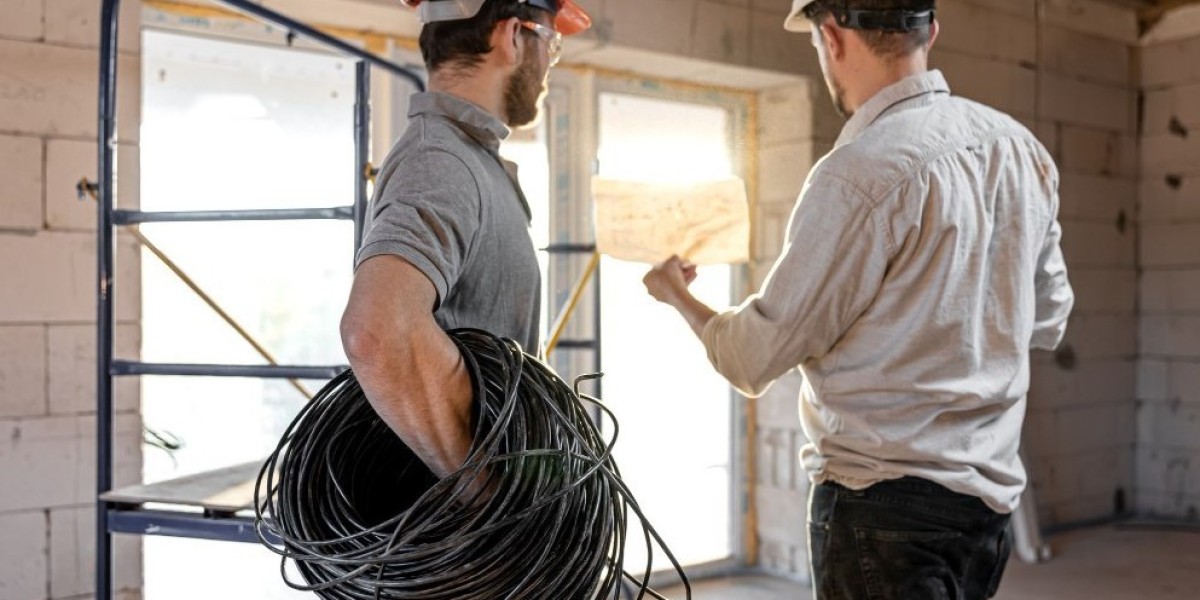Starting a career as an electrician is an exciting opportunity to work in a hands-on, high-demand field. For entry-level electricians, developing the right skills is essential to laying the foundation for a successful career. Beyond technical knowledge, aspiring electricians must also build problem-solving abilities, effective communication skills, and an understanding of safety protocols.
One of the best ways to prepare for a career in this field is by enrolling in a Basic Electrician Course. Such courses provide foundational knowledge and practical training that are vital for success. In this guide, we’ll explore the key skills entry-level electricians need to thrive in their roles and advance in their careers.
Understanding the Role of an Entry-Level Electrician
Before diving into the specific skills, it’s important to understand the typical responsibilities of an entry-level electrician. These often include:
- Installing, repairing, and maintaining electrical systems.
- Reading blueprints and technical diagrams.
- Troubleshooting issues with wiring or equipment.
- Ensuring compliance with local and national electrical codes.
While many of these tasks require technical expertise, they also demand a range of complementary skills that go beyond basic knowledge of circuits and wiring.
Core Technical Skills
- Electrical Theory
A solid understanding of electrical theory is the foundation of an electrician's career. This includes concepts like voltage, current, resistance, and power. Knowing how these principles apply in real-world scenarios helps entry-level electricians tackle their daily tasks effectively. A Basic Electrician Course is an excellent starting point for learning these essential principles. - Tool Usage and Maintenance
Electricians work with a variety of tools, from wire strippers and multimeters to drills and conduit benders. Entry-level electricians must know how to use these tools safely and efficiently. Proper maintenance of tools is also critical to ensuring longevity and reliability. - Wiring and Circuitry
Installing and troubleshooting electrical wiring is a core responsibility for electricians. This includes understanding how to connect different types of circuits, identify faults, and replace damaged components. Hands-on training is vital for mastering these skills. - Code Compliance
Adhering to local and national electrical codes is mandatory for all electricians. Entry-level professionals should familiarize themselves with these regulations to ensure their work is safe and up to standard.
Problem-Solving Skills
Electricians often encounter unexpected challenges, such as faulty equipment or wiring issues. Entry-level electricians must develop strong problem-solving abilities to diagnose and resolve these issues effectively.
For instance:
- Learning how to troubleshoot common electrical problems can save time and prevent costly errors.
- Staying calm under pressure and thinking critically can help electricians find innovative solutions.
Training programs, such as a Basic Electrician Course, often include practical exercises to develop these problem-solving skills.
Communication and Interpersonal Skills
- Customer Interaction
Entry-level electricians frequently interact with clients, whether explaining repair needs or discussing installation options. Clear and professional communication is essential to building trust and ensuring customer satisfaction. - Team Collaboration
Electricians often work as part of a team, especially on large projects. Being able to communicate effectively with colleagues, supervisors, and other tradespeople is critical for maintaining efficiency and safety on the job site. - Active Listening
Listening carefully to clients and supervisors ensures that electricians fully understand project requirements and can deliver results that meet expectations.
Attention to Detail
Electricity is unforgiving when mistakes are made. Entry-level electricians must develop meticulous attention to detail to:
- Accurately read blueprints and diagrams.
- Measure and cut wires to precise lengths.
- Ensure all connections are secure and comply with safety standards.
Being detail-oriented not only prevents errors but also enhances an electrician's reputation for quality work.
Safety Awareness
Electricians work in environments where safety is paramount. Entry-level electricians must prioritize safety by:
- Wearing appropriate personal protective equipment (PPE) such as gloves, goggles, and insulated boots.
- Identifying potential hazards, such as exposed wires or damp conditions.
- Following established safety protocols to reduce the risk of injury.
Many training programs, including a Basic Electrician Course, emphasize safety education to ensure that new electricians enter the field with a strong understanding of risk management.
Physical Stamina and Dexterity
Electrical work often involves long hours of standing, climbing ladders, or working in confined spaces. Entry-level electricians should be prepared to:
- Build physical stamina for demanding tasks.
- Develop hand-eye coordination for precise work, such as connecting wires or installing small components.
Maintaining physical fitness can make these tasks more manageable and reduce the risk of fatigue or injury.
Lifelong Learning
The electrical industry is constantly evolving, with new technologies and tools emerging regularly. Entry-level electricians must adopt a mindset of lifelong learning to stay ahead of the curve. This can include:
- Attending workshops or seminars on the latest advancements in electrical systems.
- Pursuing advanced certifications to expand their skill set.
- Continuously reviewing and updating their knowledge of electrical codes.
A Basic Electrician Course serves as a stepping stone for ongoing professional development, ensuring that electricians remain competitive in their field.
Steps to Building a Successful Career
- Enroll in Training Programs
Begin your journey with a comprehensive training program that covers the basics of electrical work. This foundation is critical for gaining confidence and competence. - Gain Hands-On Experience
Apprenticeships or entry-level positions provide invaluable real-world experience. Working under the guidance of seasoned professionals helps reinforce the skills learned in training. - Network Within the Industry
Building relationships with other electricians, contractors, and industry professionals can open doors to new opportunities and mentorship. - Invest in Advanced Certifications
As your career progresses, consider pursuing advanced certifications to specialize in areas like renewable energy systems or industrial electrical work.
Conclusion
Success as an entry-level electrician requires more than just technical know-how. From mastering the basics of electrical theory to honing communication and problem-solving skills, aspiring electricians must develop a well-rounded skill set to thrive in this competitive field.
For those looking to kickstart their career, a Basic Electrician Course offers the ideal foundation. By combining formal training with hands-on experience and a commitment to lifelong learning, entry-level electricians can lay the groundwork for a rewarding and sustainable career in this essential trade.



